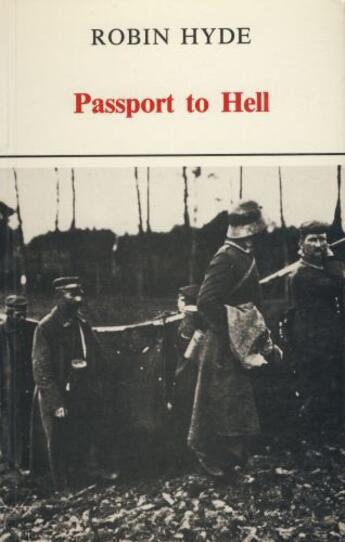-
Nombre de pages : (-)
-
Collection :
(-)
-
Genre :
(-)
-
Thème :
Non attribué
-
Prix littéraire(s) :
(-)
Résumé:
When journalist Robin Hyde researched and published in 1931 an article on life in Mt Eden gaol, her description of prison life was so convincing that the authorities ransacked records for information on convict Robin Hyde. This same journalistic verisimilitude prompted John A. Lee, World War I... Voir plus
When journalist Robin Hyde researched and published in 1931 an article on life in Mt Eden gaol, her description of prison life was so convincing that the authorities ransacked records for information on convict Robin Hyde. This same journalistic verisimilitude prompted John A. Lee, World War I veteran, author, and politician, to greet Hyde's Passport to Hell as 'the most important New Zealand war book yet published'. Hyde took the raw New Zealand, Gallipoli, and Western Front experiences of Starkie - perhaps the quintessential NZ soldier in 'his contempt of danger and discipline alike' - and, as editor D. I. B. Smith points out, 'composed' her book in the way that the finest war books are shaped. She is 'concerned to show the making of a man who can both murder a surrendering prisoner and carry a wounded comrade across no-man's land as «gently as a kitten"'. Hyde knew she was writing more than a documentary of war: '[Starkie is] something of a visionary and - in physical courage - unquestionably heroic . . . I had to write [the book] when I heard his story, and because it's an illustration of Walt Whitman's line - «There is to me something profoundly affecting in large masses of men following the lead of those who do not believe in man."'
Donner votre avis









